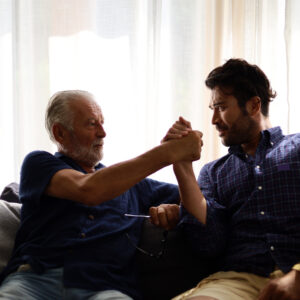An Overview
One important, but often overlooked, part of the recovery journey is the need for emotional sobriety. Since it’s common for people with substance use disorders to turn to drugs and alcohol to self-medicate their emotional distress, learning to process emotions in a healthy way is an essential step in preventing relapse.
Since no two people are alike, everyone experiences recovery a bit differently. However, emotional sobriety generally means:
- Building a healthy, emotionally balanced life
- Accepting the present as it is
- Seeing struggle and grief as natural parts of life that offer an opportunity for personal growth
- Refusing to dwell on the past
- Not letting other people’s limited perceptions or expectations define your self-esteem or negatively impact your behavior
The Link Between Emotions and Addiction
People who are actively abusing drugs or alcohol often struggle to manage their emotional lives. They may exhibit the following traits:
- Trouble regulating intense negative emotions such as anger
- Acting out in impulsive or dangerous ways when faced with emotionally challenging situations
- Struggling to maintain intimate connections with others
- Being unable to “roll with the punches” when encountering obstacles at work or home
- Having a generally pessimistic world view
Often, the inability to manage emotions in a constructive way is rooted in traumatic childhood experiences. The Adverse Childhood Experiences (ACE) Study, conducted by Kaiser Permanente and the Centers for Disease Control and Prevention, looked at how different types of trauma experienced in childhood affected a person’s adult behavior patterns. The study found strong links between childhood trauma and adult depression, anxiety, addiction, and relationship difficulties.
Children use their surroundings to develop their understanding of the world—creating patterns that naturally carry through to their adult years. When a child is exposed to a traumatic environment, they develop unhealthy coping mechanisms because they aren’t exposed to the positive and nurturing influences that would help them make healthier choices.
For example, a child who is being abused at home may be afraid to tell someone about the abuse because they don’t want to be separated from their siblings or see their parents put in jail. They may be attracted to alcohol as a way to temporarily numb their physical and emotional pain while keeping their secret. Over time, alcohol becomes the solution to all their problems. Drinking to deal with the abuse at home turns into drinking to deal with a stressful day at work, an argument with a friend, or being nervous about a first date.
Gender expectations can also make it more difficult to achieve emotional sobriety. Our culture often equates emotions with femininity. From the time they are little boys, men are encouraged to be “strong” and “brave” by not talking about their feelings. As a result, men often feel that they have nowhere to turn when they are sad, angry, or frustrated. For men in recovery, 12-Step groups such as Alcoholics Anonymous (AA) and Narcotics Anonymous (NA) can provide a safe, judgment-free place to work towards better managing their emotions.
Developing Emotional Sobriety
Achieving emotional sobriety doesn’t mean that an individual must be happy and upbeat 24/7. In fact, AA often refers to people with an unrealistic expectation of happiness in recovery as riding the pink cloud.
It’s completely natural to feel a wide range of emotions on any given day. Being emotionally sober simply means that you are comfortable being present with all of your feelings without any one of them defining or controlling you.
Developing emotional sobriety often involves several different activities:
- Working with a therapist to process emotional ups and downs as they happen
- Journaling to better understand personal feelings
- Learning how diet, exercise, and sleep habits can affect your mood
- Building strong and emotionally honest relationships with friends and family
- Finding hobbies and meaningful activities that provide a way to deal with stress
- Practicing mindfulness meditation
- Exploring spirituality
For individuals with a dual diagnosis that involves a mental health disorder such as depression or anxiety, medication may be recommended to rebalance brain chemistry. Medication isn’t a shortcut to emotional sobriety, however. It’s just one small part of a comprehensive treatment plan.
As with other aspects of the recovery process, it’s important to be patient with yourself. Breaking old habits isn’t easy. You can expect ups and downs along the way, but you will start to gradually notice that your overall outlook towards life is becoming more balanced.
How Waypoint Recovery Center Can Help
At our South Carolina drug and alcohol treatment center, we take a holistic view of the recovery process. Our goal is to help clients develop the skills they need to live happy, healthy, and productive lives without the use of addictive substances. Care plans are personalized to fit individual needs, taking into account any co-occurring mental health disorders that might affect a client’s progress towards emotional sobriety. If you’re ready to take the first steps towards a brighter future, we’re here to help.






